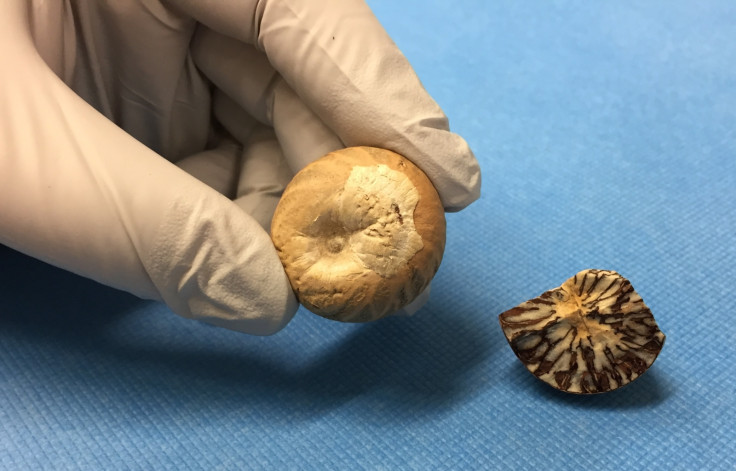Areca nut could hold the key to treat nicotine addiction – and quit smoking
Compounds in the areca nut could be synthesised to create new treatments for nicotine addiction.
Scientists have discovered that compounds derived from the areca nut could ensure cigarette smokers and people addicted to betel quid quit their habits. This treatment could offer a safe alternative to current smoking cessation drugs on the market, which often have a number of harmful side effects.
Betel quid is a substance that is chewed and tends to be made up of betel leaf, areca nut and slaked lime, and potentially tobacco. It is estimated that up to 600 million men and women worldwide use some variety of betel quid – especially on the Indian subcontinent and throughout Asia.
The practice of chewing the mixture has been linked to a higher risk of developing precancerous conditions, oral cancers and cancer of the oesophagus. It can also lead to detrimental health outcomes and cardiovascular problems, and it often goes hand in hand with an addiction to nicotine.
Scientists have now discovered that one of the components that make up betel quid – the areca nut - could also help people stop taking the mixture. Compounds from the nuts that they have identified act on the nicotine addiction – and could also help smokers turn away from their cigarettes.
"There's a commonality to the two addictions, so we thought we could develop drugs that target both," says Roger L Papke one of the lead researchers on the project.
With his colleagues, he presented their findings at the 253rd National Meeting & Exposition of the American Chemical Society (ACS).
Alternative to smoking cessation drugs
Smokers now have access to prescription smoking cessation drugs such as varenicline, a selective nicotine-receptor partial agonist. This means that it works by stimulating nicotine receptors, but not as much as nicotine does. It can thus reduce cravings for tobacco products (whether cigarettes or betel quids) and decrease their pleasurable effects.

The problem is that some people may develop agitation, depressed mood, or suicidal thoughts when taking this drug. Patients with a history of psychiatric illness should in fact be monitored closely when taking varenicline. Some users have also reported sleepwalking and cardiovascular problems.
The researchers want to design new treatments that would also be effective, but with reduced side-effects. Problems are known to occur because varenicline also binds to other nicotine receptors in the brain that aren't involved in addiction. "The molecules that we're developing are more specific -they do not target those other receptors at all, so our compounds should be safer," Papke explained.

The team had previously studied one of the psychoactive compounds in areca nuts known as arecoline (see video). They had found out that arecoline stimulates the receptors responsible for nicotine addiction but not the other types of nicotine receptors.
In this new research, the scientists have synthesised a range of compounds with slightly different structures than arecoline. Conducting experiments in vitro, in frog ocytes (female sex cells), they showed that some of these new compounds were also able to bind to the addiction-related nicotine receptors, while leaving the others alone. This suggests that the risk of harmful side effects will potentially be reduced with these compounds.
These compounds could thus be used safely as treatments for addiction to cigarettes or to betel quids. The scientists have also found indications that areca nut extracts could have beneficial effects.
The next step for the researchers will be to obtain funding and test these compounds in animal models.
© Copyright IBTimes 2025. All rights reserved.






















